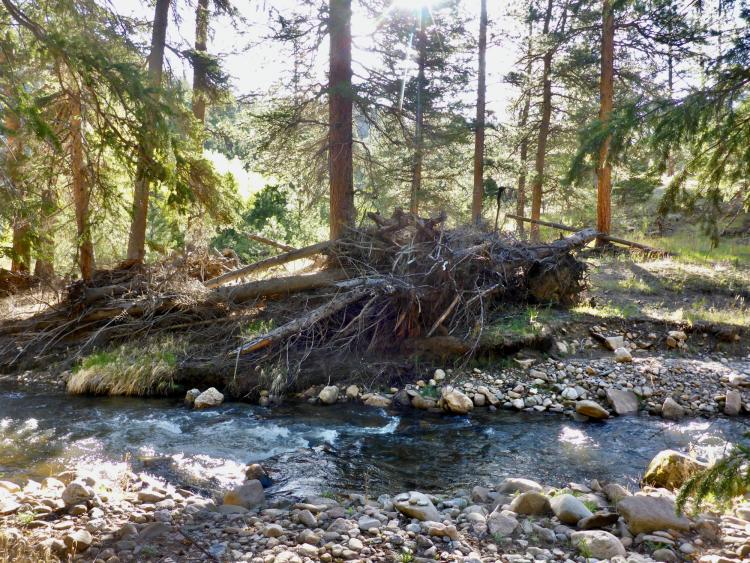
Professor Katherine Lininger received a $407,205 award from the National Science Foundation titled, "Floodplain ecogeomorphic processes: interactions between floodplain forest characteristics, wood accumulations, and hydrogeomorphology”. Lininger’s collaborators on the project include Dr. Virginia Ruiz-Villanueva at the University of Lausanne, Switzerland, and Jeff Marr at the St. Anthony Falls Laboratory at the University of Minnesota. With this support, the group will investigate floodplain dynamics and interactions between wood deposition, floodplain forests, and flooding.
Downed, dead wood on the floodplain influences physical (geomorphic) processes and provides ecological benefits to river corridors. However, understanding the interactions between floodplain vegetation, wood, and hydrogeomorphology is a new frontier in geomorphic research, and numerical modeling of wood transport and deposition has only recently been developed. This project uses scaled physical models of rivers and floodplains (flumes), numerical modelling, and field observations to determine how flooding, forest characteristics, and physical characteristics of rivers and floodplains cause the deposition of wood onto floodplains and subsequent remobilization. The results of the project will be disseminated to management agencies and restoration groups in the US and Europe that are incorporating floodplain wood into efforts to enhance floodplain ecosystem functioning. This project will develop K-12, undergraduate, and graduate level flume laboratory assignments and lessons on floodplain dynamics. Lininger will also work with CU Science Discovery to attend outreach events and develop interactive activities demonstrating river and floodplain dynamics and the important role of wood in creating habitat for biota.
